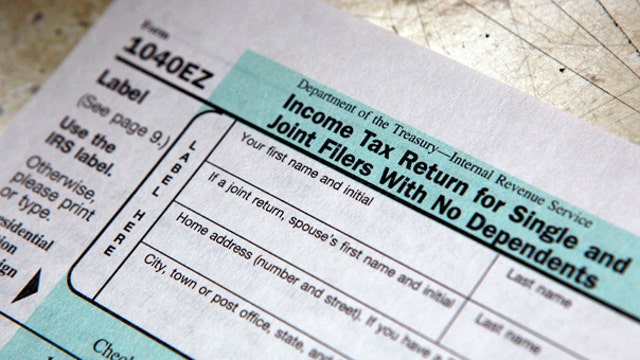4 Ways to Pay Your Taxes
If you’re among the Americans who wait until mid-April to file your taxes because you owe money — and you don’t happen to have available funds to pay — what do you do?
The Internal Revenue Service has anticipated the situation, and it has some options for you. First, let’s take the easiest one — burying your head in the sand and just not filing — off the table. You don’t want the IRS taking a collection against you. Even if you have filed for an extension, you’re not off the hook for the April 15 deadline — you’re still expected to pay an estimate of taxes due.
But you may find that the IRS is more understanding than you feared. If you’re having a financial hardship, you should still file your taxes and send in what you can. At least you’ll avoid a “failure to file” penalty. You can also reach out to the IRS and arrange for a payment plan. You may even find that it’s where you get the best terms.
Among your other options at this point:
1. Using a Credit Card
Have you gotten “convenience checks” in the mail from your credit card issuer with a promotional period of low- or no-interest financing? It may be time to take a closer look at that offer now. If you have room on your credit card (preferably while keeping your balance at no more than 30% of your credit line to limit any potential negative impact to your credit score) and the fees are reasonable, you may want to go this route. Be sure, though, that you clearly understand when the promotional period ends and what the interest rate becomes at that point. The IRS accepts checks and credit cards, but be aware that if you use the card, you’ll pay a convenience fee. A credit card cash advance can also get the tax bill paid, but the associated costs are likely to be higher.
2. Getting a Personal Loan
If your credit is good, you can likely get a personal loan approved relatively quickly at your financial institution. You could also consider peer-to-peer lending, but you may be running out of time at this point.
3. Family & Friends
This one carries little financial risk for you, but a high risk of damaging relationships if you’re not able to repay the loan as planned. But if you are expecting a windfall (or payment from a client) shortly, a friend or relative may be willing to lend you the money in the meantime. If it works, that can be a quick and convenient way of getting the money to pay now.
4. Emergency Fund or Home Equity Line of Credit
If you have sources of money available in case of financial emergency, think hard about tapping them. Nobody likes to see the balance of the account they have built slowly and deliberately take a sudden drop, but it’s important to remember that you have those funds so that a debt you didn’t expect doesn’t knock your finances off course. This may qualify.
And speaking of knocking finances off course, now is the time to figure out how you ended up with a big tax bill and how to keep it from happening next year. What you want to do is to owe the IRS little or nothing. Depending on why you ended up with an unexpectedly high bill, you may want to adjust your withholding or your estimated tax payments so that it doesn’t happen again next year.
How will these options affect your credit? An IRS installment plan won’t be reported to the credit reporting agencies, but if you owe $10,000 or more, the IRS may file a Notice of Tax Lien, which is considered very negative and will likely result in lower credit scores. You may be able to get the tax lien removed while you are repaying your tax debt though; you’ll use IRS Form 12277 to request the removal. If successful, your credit scores should bounce back. Personal loans, credit cards and home equity lines of credit can also affect your credit scores depending on the amount you borrow and how the new debt affects your debt usage ratio and/or mix of credit. Paid on time, these loans may even help your credit scores over time. You can get a free credit report summary, updated monthly, at Credit.com to see where you stand.
More from Credit.com
How Do Unpaid Taxes Affect Your Credit?How to File Your Taxes for FreeWhat's a Tax Lien?
This article originally appeared on Credit.com.
Gerri Detweiler is Credit.com's Director of Consumer Education. She focuses on helping people understand their credit and debt, and writes about those issues, as well as financial legislation, budgeting, debt recovery and savings strategies. She is also the co-author of Debt Collection Answers: How to Use Debt Collection Laws to Protect Your Rights, and Reduce Stress: Real-Life Solutions for Solving Your Credit Crisis as well as host of TalkCreditRadio.com. More by Gerri Detweiler




















